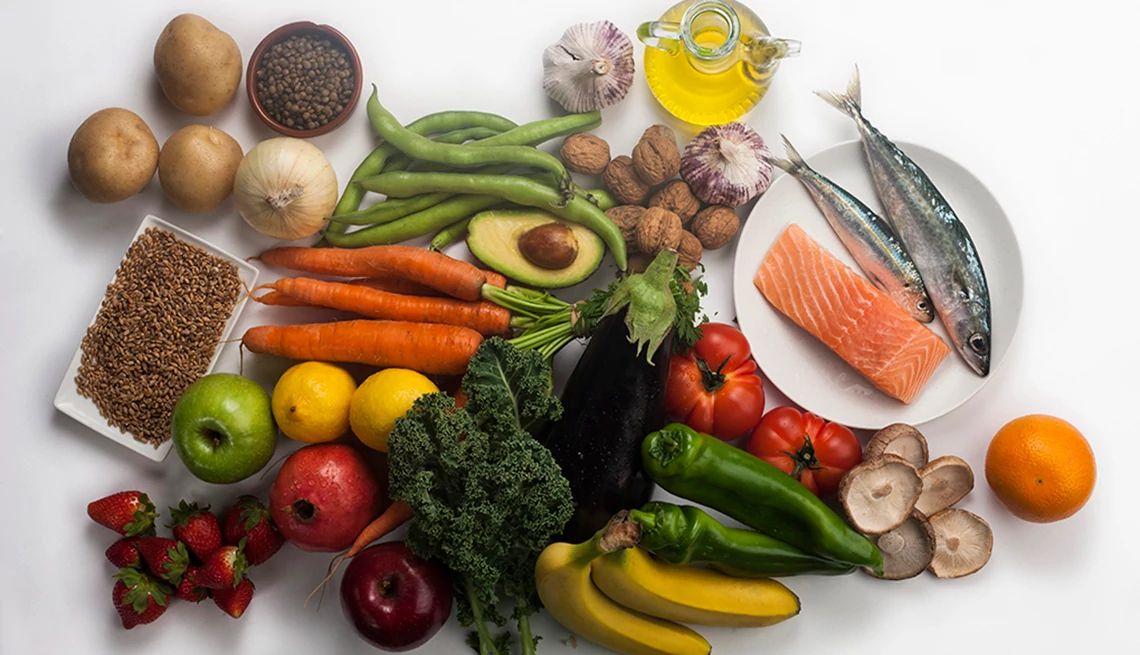Challenges


For the eighth year in a row, U.S. News & World Report has named the Mediterranean diet the best overall eating plan. The magazine staff, along with a panel of medical and nutrition experts, evaluated 38 diets to come up with its ratings. They also judged the Mediterranean plan the easiest to follow and the best for people with high cholesterol and diabetes.
So what makes this diet so popular with doctors and dietitians?
For one thing, it has science behind it, says Nicole V. Brown, a registered dietitian and nutrition consultant for the National Center for Weight and Wellness with a private practice in Springfield, Virginia.
She points to studies that show the Mediterranean diet “can help reduce blood cholesterol and triglycerides, improve blood sugar levels and help lower blood pressure.”
In addition, closely following the Mediterranean diet was associated with a lower risk of cognitive impairment and depression and a better quality of life in a study of 883 people with an average age in the mid-60s, published in 2023 in Experimental Gerontology.
Best of all, it’s a way of eating that’s pretty simple for people to follow, Brown adds.
“It emphasizes a variety of wholesome, nutrient-rich foods, like fruits, veggies, whole grains, fish and poultry, and essentially doesn’t exclude any foods, including small amounts of discretionary calories," she says. In other words, you can still enjoy an occasional sweet treat, glass of red wine or a small amount of red meat.
That kind of flexibility makes the diet appealing to her older clients, she notes.
So how does the diet work? Here’s what you need to know:
The Mediterranean diet doesn’t have the rigid rules and restrictions you find in traditional diets. It’s more accurate to call it an eating plan — one that emphasizes plant-based foods, which are rich in nutrients and fiber, and only a small amount of red meat and sugar. There’s also a focus on sharing meals with others as well as doing something you enjoy, such as walking, dancing, gardening or yoga, to stay physically active.
You have a lot of choices. Most important are fruits, vegetables, whole grains — such as brown rice, oats, barley or whole wheat — nuts, seeds, beans and olive oil. Go for fish or seafood at least one or two times a week; cheese, yogurt, lean poultry and eggs in low to moderate amounts; and only a little red meat. (Brown works with her clients to gradually reduce red meat to four ounces a month.) Sweets should also be limited, with fresh or frozen fruit as the preferred dessert.
Interest in the diet began with research done in the 1950s suggesting that people living in the Mediterranean region of the world, including Italy, Greece and neighboring countries, were healthier than the typical American. People of this region had lower rates of heart disease, thanks to their predominantly plant-based diet of foods high in antioxidants and anti-inflammatory nutrients, plus regular physical activity.













More From Staying Sharp
Order Smart at Fast-Food Spots
A few simple swaps can lead to healthier meals
Mama Mann’s Kitchen: Cajun Rainbow Trout
Watch Tamela and David Mann prepare a delicious mealHow to Roast Chicken
Roast chicken is one of the most gratifying dishes a home cook can make